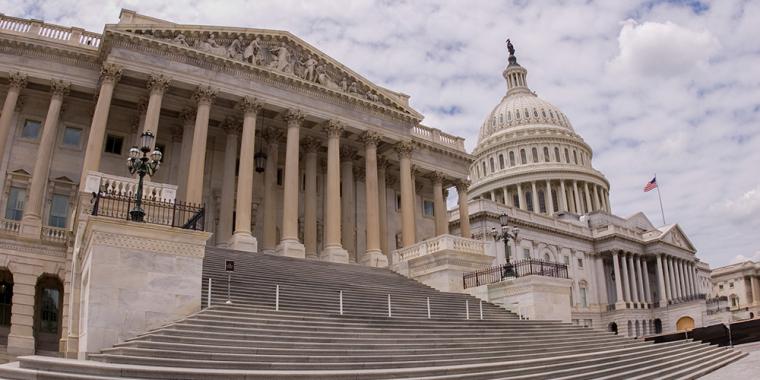
Senate Passes FY19 Defense Authorization Bill with Federal Employee Provisions
Yesterday, the Senate passed its version of the Fiscal Year 2019 National Defense Authorization Act (NDAA), H.R. 5515, by a vote of 85 to 10. Although there were several amendments filed that adversely impacted federal employees, including on official time for union representation, those amendments were successfully blocked and not considered. The bill now goes to a House and Senate Conference Committee to work out differences between the two bills.
As the union reported earlier, section 1123 of the Senate bill would increase the amount of Voluntary Separation Incentive Payments (VSIPs) from $25,000 to $40,000 and allows this figure to be adjusted for inflation. NTEU strongly supports this provision, as it is essential to proper workforce reshaping, and the dollar amount having been frozen for so many years no longer functions as a true incentive.
However, both the House and Senate bills contain a provision providing direct hiring authority for college graduates and post-secondary students. NTEU opposes this provision due in part to the limited notice requirement for internal candidates who could miss out on potential promotional opportunities in their home agencies. NTEU welcomes the next generation to federal service; however, we believe their hiring should be done under merit system principles, with public notice to guard against a career civil service from becoming comprised of only political appointees, and the family and friends of those in leadership positions.
The House version of this bill also contains other provisions that are of concern to NTEU. Section 1107 would expand the number of alternative personnel systems that operate outside of the General Schedule, and section 1109 would provide agencies with the ability to hire term and temporary employees for longer periods of time and, in certain cases, without providing public notice for positions. NTEU is concerned that the alternative personnel language will herald in larger congressional attempts to derail compensation, performance management and their negotiability, and that the hiring authorities will be used to hire short-term workers, without benefits, at the expense of hiring, full-time, permanent positions.
As you may recall, the House bill also contains a requirement added by Representative Dennis Ross (FL), which would require an annual report from the Office of Personnel Management (OPM) on agencies’ use of official time for union representation. The report would also require a reporting on the total number of federal employees who solely conduct union activities under official time (those on 100% official time); the description of the use of federal property, including the square footage of office space and rooms provided for official time activities; and the specific activities and purposes for which official time was granted, and their resulting impact on agency operations. Given the fact that the most recent OPM report on official time refers to the practice as “Taxpayer Funded Union Time,” and following the Administration’s release of the three May 25th Executive Orders, NTEU views this report as a way for Congress to ramp up its efforts to erode official time and union representation of federal employees. Further, OPM’s recent issuance of the report makes this statutory language unnecessary.
As House and Senate conferees begin working out differences between the two bills, NTEU will continue to work with our House and Senate partners to make them aware of the impact of these government-wide provisions on frontline federal employees, and the need to safeguard core collective bargaining rights. The union will keep you posted on any changes as this bill moves forward.
